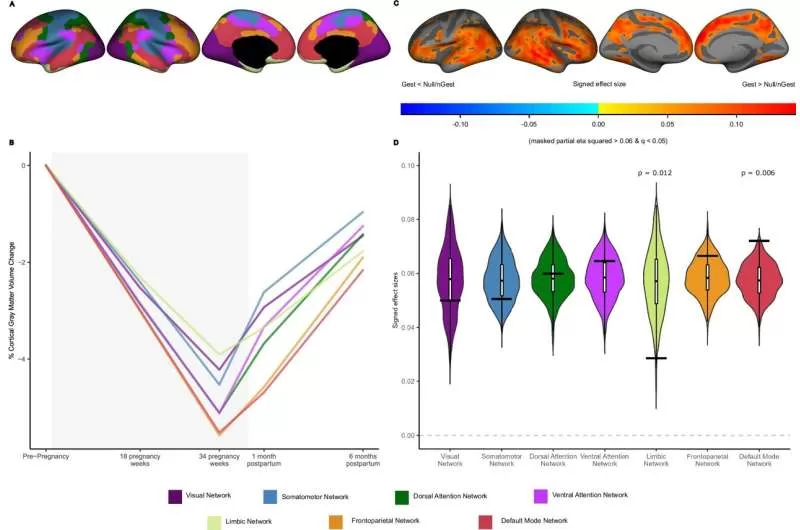January 18, 2025 | Science & Health
A pioneering study from the Universitat Autònoma de Barcelona (UAB) has revealed that nearly 94% of gray matter in the brains of expectant mothers undergoes substantial changes during pregnancy, marking a crucial advancement in our understanding of the maternal brain. Published in Nature Communications, the study, led by Camila Servin-Barthet and Magdalena Martínez-García, and coordinated by Òscar Vilarroya and Susana Carmona, is the first to utilize neuroimaging techniques to track the brains of women during pregnancy, providing vital insights into the biological processes of motherhood.
The study analyzed the brains of 179 women, including first-time mothers and a control group of non-gestational mothers, whose partners were pregnant. This comparison allowed the researchers to distinguish the biological effects of pregnancy from those driven by the experience of motherhood. By focusing on the structural changes that occur during the second and third trimesters of pregnancy and the first six months postpartum, the research identified notable reductions in brain gray matter, particularly in areas associated with social cognition.
According to the findings, the volume of gray matter in the brain decreases by up to 4.9% during pregnancy, with a partial recovery observed after childbirth. The changes, which affect almost the entirety of the brain’s gray matter, are linked to fluctuations in two estrogen hormones—estriol-3-sulfate and estrone-sulfate—that surge during pregnancy and return to normal levels post-delivery.
Interestingly, the degree of estrogen fluctuation during pregnancy was associated with the extent of gray matter changes. Women who experienced larger increases and subsequent decreases in estrogen levels showed more significant reductions in gray matter volume, followed by greater recovery postpartum. The study also found that women who had higher recovery rates of gray matter were more likely to report stronger maternal bonding with their infants at six months postpartum, highlighting the connection between brain changes and maternal well-being.
“This research marks a vital step in understanding how pregnancy impacts the brain, both biologically and emotionally,” said Servin-Barthet. “By linking structural brain changes with hormonal shifts and maternal bonding, we can better appreciate how the brain adapts during this transformative period.”
The inclusion of the non-gestational mothers as a control group was a key element of the study, helping researchers isolate the specific biological effects of pregnancy. The study’s robust design and large sample size provide a comprehensive and reliable reference for understanding neurobiological changes in mothers, setting the stage for future research into how these changes may relate to conditions such as postpartum depression.
“This work not only provides essential insights into the maternal brain but also offers a foundation for future studies investigating the neurobiological underpinnings of maternal mental health,” said Vilarroya. “We hope this research contributes to a deeper understanding of how pregnancy-related brain changes can impact women’s health and behavior.”
As this area of research progresses, scientists aim to expand their understanding of maternal brain changes across diverse populations and clinical conditions, providing a more comprehensive picture of the brain’s role during this critical life stage.
For further details, refer to the study: Pregnancy entails a U-shaped trajectory in human brain structure linked to hormones and maternal attachment, Nature Communications (2025), DOI: 10.1038/s41467-025-55830-0.












